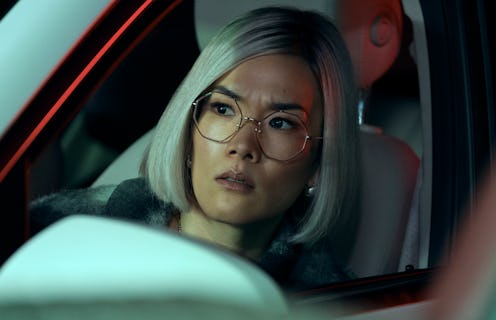Streaming
Will BEEF Return For Season 2 On Netflix?
Filming the show took a toll on the cast.

Spoilers ahead for the ending of BEEF Season 1. BEEF is all about road rage gone wrong — and really, when does it ever go right? It follows two strangers, failing contractor Danny Cho (Steven Yeun) and self-made entrepreneur Amy Lau (Ali Wong), and their escalating feud after they nearly collide in a parking lot. As their feud deepens, their antics become angrier and more violent, soon pulling in everyone around them.
According to creator Lee Sung Jin, it’s based on a real-life road rage incident. It was “very similar” to BEEF, he explained to Complex. “Not in a parking lot, but the light turned green and I didn’t go so this white SUV, a BMW, started honking at me.” Lee got into an argument with the man, and then he decided to follow him for a while. He said he “didn’t have a plan,” and luckily, it “didn’t end at all like the show.” But the moment of anger inspired the series.
Though it boasts a stellar cast and the backing of indie production company A24, it’s unlikely that BEEF Season 2 will happen. It was billed as a 10-episode series, and on top of that, it was a pretty emotionally taxing series to film for lead actors Steven Yeun and Ali Wong.
"Our bodies shut down," Yeun explained during a Q&A for the show’s world premiere at South by Southwest.
"Steven and I both broke out in hives after the show. Mine was on my face. His was all over his body because he's weak like that,” Wong joked. She said the show “definitely took a toll on us,” which they didn’t expect. "If we knew what we were going to put our bodies and minds through, maybe we wouldn't have said yes. But we're really glad we did,” she added.
The show also feels like it has a pretty conclusive ending. After several bloody confrontations, Amy and Danny’s feud takes them out to the hills outside of Los Angeles, where they run each other off the road and subsequently trap themselves out in the wilderness. Amy is pissed she might never see June again, having lost custody of her to George, while Danny is convinced that his brother Paul was killed by the cops.
Bloody, lost, and having accidentally ingested some psychedelic plants, they end up opening up to each other. They talk about culture, the ‘80s, philosophy, religion, their families, and Danny even admits that before he met Amy, he tried to die by suicide. They realize they’re both deeply unhappy, and they have a lot more in common than they thought they did. Thinking they’re dying, they fully forgive each other. “I see your life, you poor thing,” he tells her, while she says, “I see it all. You don’t have to hide, it’s ok.”
They wake up the next morning and manage to limp back to civilization. Danny finds out Paul is still alive, and Amy offers to help him hire a lawyer to keep him out of jail. But as they near the houses, they’re confronted by George, who shoots Danny. The season ends with Danny comatose in a hospital bed. Amy crawls into bed with him and holds him as the colors change in the window, implying a long passage of time. In the final shot, we see Danny’s hand curl to hold her back.
While you could argue that a second season could explore Danny and Amy’s new relationship, this seems to be the ending that Lee had in mind for the series. After all, the final episode is titled “Figures of Light,” which comes from a Carl Jung quote that served as Lee’s “north star” while writing the series: “One does not become enlightened by imagining figures of light, but by making the darkness conscious.”
As Yeun said at SXSW, “This whole show is about every character’s shadow self, and we all have that.” Lee added, “If we could just take our masks off once in a while, the need to go as crazy with expressing some of these things wouldn’t be as high.”